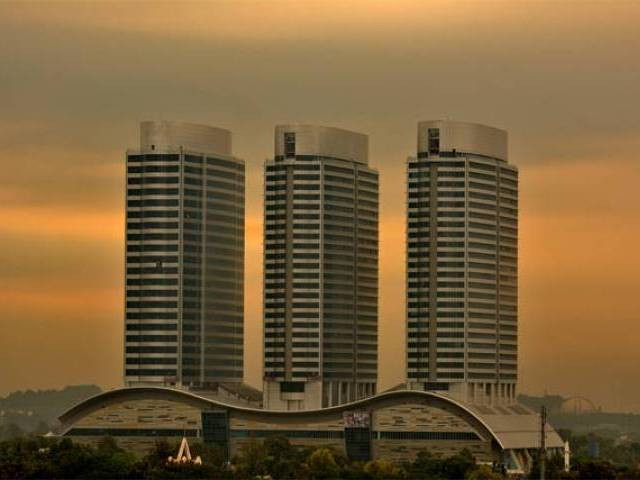Rs350m project approved to ‘accommodate ex-bureaucrats’
Interestingly, Public Investment Programme is already there for the purpose

PHOTO: WIKIPEDIA
The project was approved by the Central Development Working Party (CDWP) for strengthening the Planning Commission and the Ministry of Planning. Interestingly, a regular wing – called Public Investment Programme – is already there for the same purpose.
More than half of the money – 56 per cent, or Rs197 million – will be spent on refurbishing office space and procuring furniture. As much as Rs105 million, or 30 per cent of the project cost, will go to ‘specialists, advisers’ and others.
For paying salaries of janitorial staff, Rs6 million has been approved. Another Rs14 million will be spent on maintenance of two vehicles.
The institutional strengthening and efficiency enhancement project was originally conceived in 2006 during the Pervez Musharraf regime.
WAPDA all set to construct dam in Chiniot
Its second phase was initiated in 2009 that continued till 2012 when the then deputy chairman of the Planning Commission, Dr Nadeemul Haque, decided to close the project, terming it a waste of financial resources.
At that time, the cost of the second phase of the project was Rs144.2 million and it was among 14 other projects which had been abandoned to save Rs25 billion.
These projects were initiated in the name of capacity-building, but the real motive was to accommodate retired bureaucrats of the Planning Commission.
The PML-N government not only revived the project but gave it two extensions in 2015 and January this year.
Now, the government has approved the third phase for the July 2017-June 2020 period at a cost of Rs350 million.
Minister for Planning and Development Ahsan Iqbal said that the third phase of the project was required to consolidate scattered offices of the Ministry of Planning. He said that two floors of the New Secretariat building would be refurbished.
The technical appraisal section of the ministry had raised questions over the rationale of extending the project to the third phase. It underlined that the “result-based monitoring indicators” of previous two phases had not been shared while seeking approval for the third phase. It also objected that no break-up of cost was provided against a cumulative provision of Rs92 million for procuring furniture.
The Public Investment Programme (PIP) wing of the Planning Ministry has been severely undermined by the institutional strengthening project. The project overlaps the functions of the PIP wing and the PIP chief is always in a love-hate relationship with the PSDP specialist.
Financial crunch: ‘Rs1.6b dog training project deferred’
Same is the case with Monitoring – a PSDP-financed project approved by CDWP on Monday. There already exists a Monitoring and Implementation unit in the Planning Commission, headed by a member-level official.
To justify its existence, the working paper of the third phase of the institutional strengthening project cited “inadequate public policy formulation, analysis and implementation” as serious issues.
At least a dozen projects were launched all in the name of monitoring development projects, rural economy planning, urban planning, energy planning, institutional capacity building and transport planning.
These are the core functions of the planning ministry and the Planning Commission.
While scrutinising the fiscal year 2017-18, development portfolio of the Planning Ministry, the National Assembly’s Standing Committee on Planning also criticised this ad hoc approach.



















COMMENTS
Comments are moderated and generally will be posted if they are on-topic and not abusive.
For more information, please see our Comments FAQ